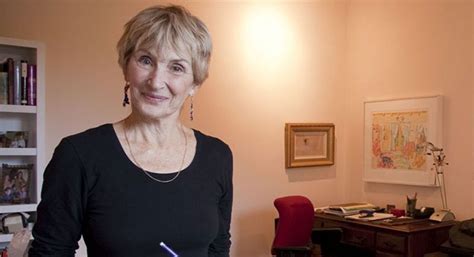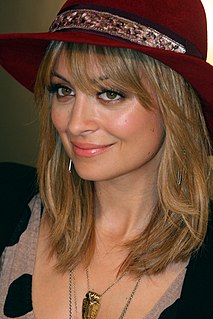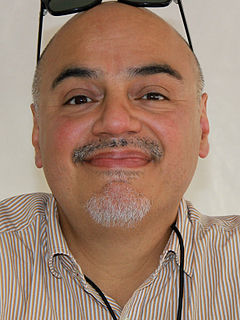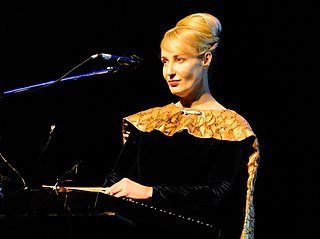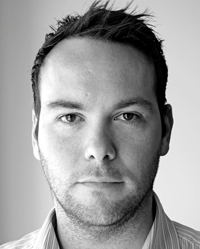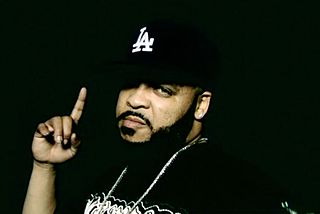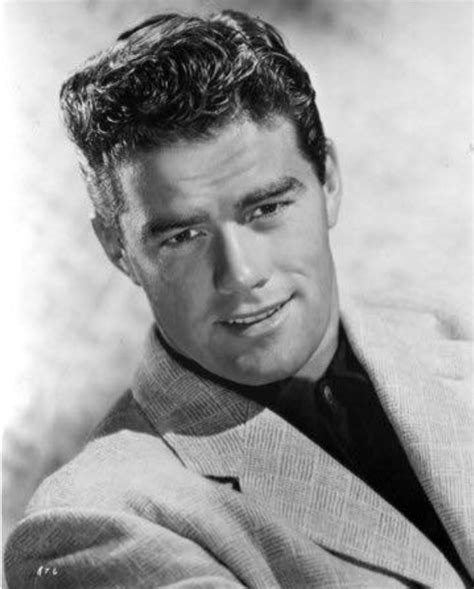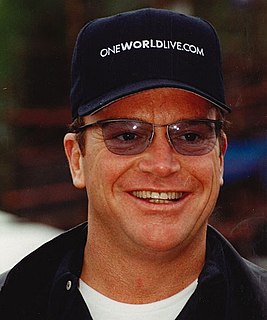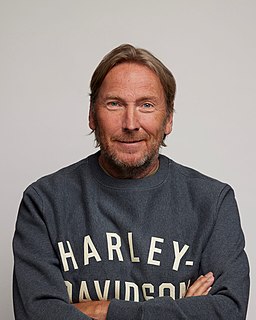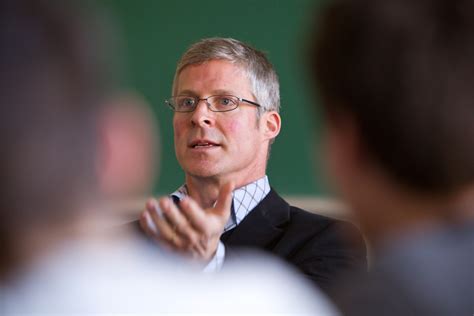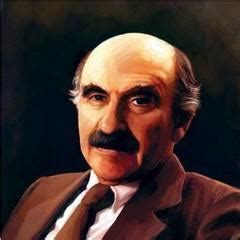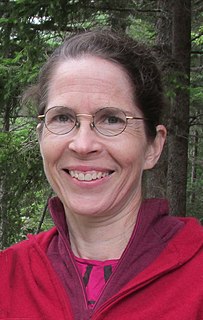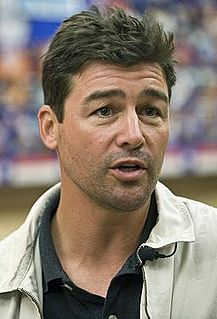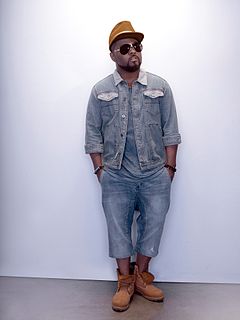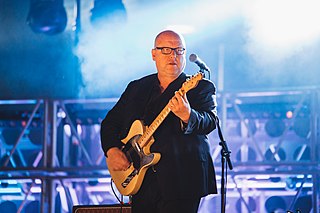Top 1200 Creative Writers Quotes & Sayings - Page 16
Explore popular Creative Writers quotes.
Last updated on November 24, 2024.
The way we learn to write is the way we learn to talk: We listen to others and start mimicking speech, and that's how we come to become speakers. Writers you admire, you admire the way they plot, you admire the way they create a character, you admire the way they put a sentence together, those are the writers you should be reading.
It's exciting having a student who is not used to expressing their emotional side and bringing that out in them and see that developing and helping to nurture that. That's an exciting thing. In a class of fifteen there are usually two very good writers, equal to good student writers anywhere in the country. Those two make the class wonderful.
There are still many writers out in the Bay, extraordinary writers like Gina Valdez, a poet who I just saw in Portland. We have young people like Eduardo Corral, who won the Yale Younger Poets Award. José Antonio Rodriguez, published by Luis Rodriguez. But there are only a few of us who are paid attention to in New York. There are legions behind us who are not.
The action of the child inventing a new game with his playmates; Einstein formulating a theory of relativity; the housewife devising a new sauce for the meat, a young author writing his first novel; all of these are in terms of definition, Creative, and there is no attempt to set them in some order of more or less Creative.
There are so many different kinds of writing and so many ways to work that the only rule is this: do what works. Almost everything has been tried and found to succeed for somebody. The methods, even the ideas of successful writers contradict each other in a most heartening way, and the only element I find common to all successful writers is persistence-an overwhelming determination to succeed.
On the one hand, it is in and through creative minds that the community fulfils itself at its best and reaches its highest forms; and on the other, it is from them that the community recovers the social substance with which it had nourished them, transfigured by their creative alchemy into a still higher social substance.
I feel that there are two kinds of writers. I feel that there are writers who are storytellers and then there are those just working out their obsessions. I think I'm a combination. I think, at least for these books, I'm going with fear. I've always been interested in fear. Fear is something I've dealt with in life, and I think it's the main motivating factor of everything, almost. From sex to politics.
What we're trying to do as writers is rescue, preserve this space of thoughtfulness of language, of a deeper and more honest appreciation of our reality. And, so, we have to work even harder as writers against this tide of silliness, against this tide of superficiality, against this horrible Greek chorus on Twitter where everyone is insulting each other and now we have an insulter-in-chief, who's risen to the presidency by insulting people.
I suppose that anyone who does any kind of creative work some time in their life - especially as you grow into middle age! - you come to a time where you really question more and more frequently, whether you have anything else to offer. And at its worst, you feel utterly bereft of whatever creative force it takes to do that work.
That famous writer’s block is a myth as far as I’m concerned. I think bad writers must have a great difficulty writing. They don’t want to do it. They have become writers out of reasons of ambition. It must be a great strain to them to make marks on a page when they really have nothing much to say, and don’t enjoy doing it. I’m not so sure what I have to say but I certainly enjoy making sentences.
The reason some crime writers have a chip on their shoulder about the label is because their good books are shelved beside books about nuns and birdwatchers and cats who solve crimes. Overseas, my books are reviewed alongside those of authors like Robert Stone and Don DeLillo, and I have to live and die by that comparison. They don't ghettoize crime writers in other countries, and of course they shouldn't.
"Why is the creative entrepreneur the riskiest type to be?" I asked. "Because being creative means you are often a pioneer. It is easy to copy a successful and proven product. It is also less risky. If you learn to innovate, create, or invent your way to success, you are an entrepreneur creating new value rather than an entrepreneur who wins by copying."
I don't believe that fiction is dead. I know there are some people who believe that it's an outdated art form, and that to express truth today you need to work in different forms, to write books where it's perhaps not clear what's fiction and what's memoir. I have nothing against those books and love many of them very much. But we have enough space for everyone, traditional realists and hybrid writers, and experimental writers all.
Read a lot. But read as a writer, to see how other writers are doing it. And make your knowledge of literature in English as deep and broad as you can. In workshops, writers are often told to read what is being written now, but if that is all you read, you are limiting yourself. You need to get a good overall sense of English literary history, so you can write out of that knowledge.
I struggled with the pressure of having the successful record after the first record. Second album syndrome. I'm living proof; it's very real. It was like a psychological battle to be creative. I used to never feel pressure to be creative; it's always just been a fun thing. And then suddenly it's my job, and people are asking, 'Where's the record?'
I think hard times are coming when we will be wanting the voices of writers who can see alternatives to how we live now and can see through our fear-stricken society and its obsessive technologies to other ways of being, and even imagine some real grounds for hope. We will need writers who can remember freedom. Poets, visionaries-the realists of a larger reality.
I feel connected to every other creative element because I have a creative soul. My isolation is not through the work it's through not being able to connect with mediocrity. When I was younger I was a punk and then when I got married and had children I became a mother. They are the only two memberships to any clan-like cultures that I have ever embraced.
The impresario functions as a bridge and a translator. He or she is a bridge between the creative point of view - which is often very focused on the creative task itself - and the resource-allocation process. The impresario has to make certain the funds and people required to get that task completed are available.
Writers are great lovers. They fall in love with other writers. That's how they learn to write. They take on a writer, read everything by him or her, read it over again until they understand how the writer moves, pauses, and sees. That's what being a lover is: stepping out of yourself, stepping into someone else's skin.
Eazy-E was not a rapper! He was a stone cold businessman. EAZY use to say that out of His own mouth. But one thing that he did have when it came to his artistry , is that voice. At least Eazy-E admitted he had ghost writers & people that wrote for him. Some of today's super star rappers will not admit they have ghost writers. Eazy-E always kept it 1000.
Even the great scientists have reported that their creative break-throughs came at a time of mental quietude. The surprising result of a nationwide inquiry among America's most eminent mathematicians, including Einstein, to find out their working methods, was that thinking 'plays only a subordinate part in the brief, decisive phase of the creative act itself'.
There are writers you admire, for the skill or the art, for the inventiveness or for the professionalism of a career well spent. And there are writers-sometimes the same ones, sometimes not-to whom you are powerfully attracted, for reasons that may or may not have to do with literary values. They speak to you, or speak for you, sometimes with a voice that could almost be your own. Often there is one writer in particular who awakens you, who is the teacher they say you will meet when you are ready for the lesson.
If you're spending a lot of time in the writers' room and then you're also acting, you have your foot in both of those doors. I'd always say to the writers, "You can say whatever you want about your boss in front of me. I'm not going to think about it as my girlfriend." You've got to be able to trash your boss, in any job.
Like, your body has to get used to being in front of people. Like - and you have to be like - you have to be kind of a ham, you know? Like, the thing about writers is they're generally self - comedy writers - self-loathing, sort of play small. And as a, like, performer, you have to think like a comedy writer but act like a performer.
I think that there is an infinite creative force that generates all consciousness and all matter and we are all connected and if you align yourself with this infinite creative force then you can be positive and you can be beautiful, I don't think its a person or god, I don't believe in any particular doctrine or dogma, only that humanity is connected.
Somebody said that writers are like otters... Otters, if they do a trick and you give them a fish, the next time they'll do a better trick or a different trick because they'd already done that one. And writers tend to be otters. Most of us get pretty bored doing the same trick. We've done it, so let's do something different.
The fiction I've written and published is certainly inflected by the work of authors I was reading or translating at the time. One of my methods for developing my own voice in fiction, a process I am taking very slowly and deliberately, is through these very intense encounters with certain writers. Strength and power in fiction is being able to resist these intoxicating voices, recognizing that they are the signatures of other writers and not one's own.
I'd been on everybody else's show and there was always a preinterview. Somebody would come with a tape recorder and you'd talk for three or four hours, and they'd take it back and it would be transcribed, and it would be given to the writers, those many writers you see on all those shows, Larry King, Letterman, Leno, etc. And then they choose the answers that will be most evocative on their show.
I have known a handful of producers who actually were equal or superior to the writers with whom they worked. These producers were a new kind of nonwriting writer hatched by the movies - as Australia produced wingless birds. They wrote without pencils or even words. Using a sort of mime-like talent, they could make up things like writers.
In English, you can find writers with a wonderful sense of humor, like Oscar Wilde. But in the French language, this is very special, and de Sade is one of the very brave writers with a sense of humor. But most people don't understand that. When they read de Sade, they take it seriously. They say, "Oh, what an awful man!" He is really a very unknown writer.
The trouble with much of the advice business is getting today about the need to be more vigorously creative is, essentially, that its advocates have generally failed to distinguish between the relatively easy process of being creative in the abstract and the infinitely more difficult process of being innovationist in the concrete.
Several factors besides skill are more significant in professional writers than in most amateurs. One is love of the surface level of language: the sound of it; the taste of it on the tongue; what it can be made to do in virtuosic passages that exist only for their own sake, like cadenzas in baroque concerti. Writers in love with their tools are not unlike surgeons obsessed with their scalpels, or Arctic sled racers who sleep among their dogs even when they don't have to.
For a man is a little lower than the angels, yet was made that he might become the companion of the Creative Forces; and thus was given--in the breath of life--the individual soul, the stamp of approval as it were of the Creator; with the ability to know itself to be itself, and to make itself, as one with the Creative Forces--irrespective of other influences.
Creativity shouldn't be seen as something otherworldly. It shouldn't be thought of as a process reserved for artists and inventors and other 'creative types.' The human mind, after all, has the creative impulse built into its operating system, hard-wired into its most essential programming code. At any given moment, the brain is automatically forming new associations, continually connecting an everyday x to an unexpected y.
The unfortunate are not as miserable as the world imagines. That urchins, the handicapped, orphans, prisoners and others are much happier than people think. And that language is a trap, that a dark evolutionary force has created languages to limit human thought. That writers are overrated fools. That all religions come from ancient comic writers. And the ultimate goal of comics is same as the purpose of humanity – to break free from language.
Soul-the spiritual principle, the creative spark of God-cannot work if you panic. Anxiety shuts down the creative centers. When you can't think, whatever you try to do becomes one blunder piled upon another. If you slow down, the spiritual principle can begin working through you so that you can figure out the solution to the problem that is bothering you.








